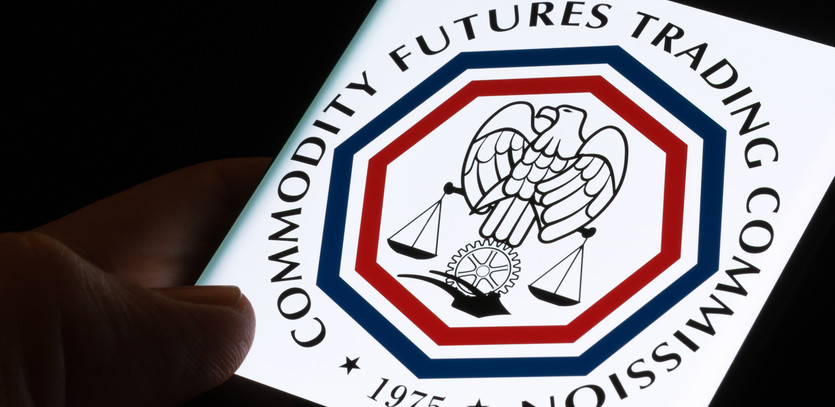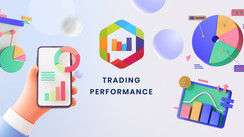Introduction to the Commodity Futures Trading Commission (CFTC)
Overview
In the ever-evolving financial landscape, the Commodity Futures Trading Commission (CFTC) emerges as a pivotal federal establishment that stands guard over the derivatives markets. Its mandate extends to fostering transparency and ensuring regulation of markets encompassing a wide array of commodities such as agricultural products, metals, and foreign exchange, among others.
Though it shares a semblance with the Securities and Exchange Commission (SEC), the CFTC has carved out a distinctive pathway, marking its forte in the derivatives contracts realm. This guide is designed to equip prospective investors with critical knowledge on navigating the complex avenues overseen by the CFTC, including understanding its function, the regulatory environment it fosters, and the recourse available in case of disputes.
Definition and Historical Background
Born in 1974 out of a federal initiative, the CFTC assumed its role as an independent entity steering the ship of regulations in the trading of options and futures. An ensemble of five commissioners, appointed by the U.S. president, forms the nucleus of the commission, a structure that safeguards it against undue political influence and promotes unbiased regulatory approaches.
The Architecture of the CFTC
Administrative Structure
At the heart of the commission's integrity is a structural principle which mandates a diverse representation of political affiliations among its commissioners. This foundational aspect, that stipulates a cap on the representation from a single political party, fosters a milieu of balanced judgments and impartial decisions.
Designated Contract Markets and Swap Execution Facilities
Diving into the intricate mechanisms of the CFTC, one discovers two primary spheres of influence: the designated contract markets and swap execution facilities. Here, a vivid ecosystem of trading platforms unveils itself where agricultural commodities, metals, and financial futures find their trading grounds. In the wake of the 2010 Dodd-Frank Act, swap execution facilities came under the purview of the CFTC, ushering in a new era of transparency and record maintenance in swap activities, a move designed to critically evaluate and mitigate risk factors in swap activities.
How the CFTC Operates
Regulatory Mechanisms
The CFTC employs a multifaceted strategy to monitor and regulate futures, options, and swaps markets. This involves a robust system of mandatory filings from market players to foster industry transparency, overseeing derivatives clearing organizations to ensure fair settlements, and instituting anti-money laundering measures to thwart potential financial crimes.
Market Surveillance
Taking a deeper look, we find the CFTC engrossed in relentless market surveillance, a crucial process aiming to nip in the bud any signs of insider trading and market manipulation. Furthermore, it keeps a vigilant eye to ensure that speculative activity remains within safe bounds, thereby preserving market stability and investor trust.
What it Means for Individual Investors
Elevating Trust in the Market Landscape
The meticulous regulatory structure upheld by the CFTC not only instills a sense of order in the vast and bustling derivatives market but goes a long way in infusing individual investors with the confidence to navigate it effectively. Whether you are a seasoned trader or making your initial forays into the commodities market, the robust backing of the CFTC offers a substantial shield against market vulnerabilities.
Providing a Safety Net Against Market Manipulation
In the complex fabric of the commodities market, individual investors often grapple with fears of market manipulations and deceitful practices that can undermine their investments. The CFTC stands tall as a sentinel, orchestrating a secure environment where fairness is not just a word but a diligently upheld principle. Here is how the CFTC fortifies the trading landscape for individual investors:
- Regulatory Oversight: Ensuring that the exchanges operate under stringent regulations that foster transparency and fairness in trades.
- Safeguard against Default: Implementing mechanisms that guarantee that the parties involved in a contract adhere to the agreed terms, thereby mitigating risks of default.
- Protection from Bad Actors: Frequently updating and maintaining a watchlist of non-U.S. companies that are not regulated by the CFTC, thereby helping investors to steer clear from potential fraudulent engagements.
Empowering Investors through Information
Knowledge is power, especially in the dynamic world of commodity trading. The CFTC plays a pivotal role in equipping investors with the requisite knowledge and tools to make informed decisions. Here are the avenues through which it achieves this:
- Education: Offering a plethora of educational resources that elucidate the nuances of the commodity market, enabling traders to understand and analyze market trends proficiently.
- Transparency: Ensuring that investors have access to comprehensive data on trading entities, fostering a transparent environment where informed decisions can be made with a clear understanding of the market dynamics.
Resourceful Complaint Redressal Mechanism
At the heart of the CFTC's commitment to safeguarding investor interests is a robust mechanism that facilitates the filing of complaints against perceived misconduct. Individual traders are not left to fend for themselves in the vast market; they find in the CFTC a reliable partner that affords them a platform to voice their concerns and seek redressal. Here is how the mechanism functions:
- Easy Access: Creating accessible avenues for individuals to file complaints with ease and efficiency.
- Swift Action: Undertaking prompt actions on receiving complaints, initiating investigations to ensure that the concerns are addressed adequately.
- Sanctions: Leveraging its regulatory prowess to impose sanctions on entities found guilty of misconduct, thereby ensuring a just trading environment.
CFTC Versus SEC: A Comparative Lens
Overview
In the grand scheme of federal oversight, the CFTC and the SEC emerge as two potent agencies ensuring the systematic regulation of financial markets. However, these entities harbor distinctive roles and regulatory scopes, working symbiotically yet maintaining clear boundaries in their jurisdictions. Here, we delve deeper into the nuances that distinguish them, drawing a comparative lens to offer a clearer perspective on their roles and functions.
The Distinct Paths of Evolution
Both agencies have traversed their individual paths of growth and evolution, adapting to the ever-changing market dynamics and responding to emerging trends. Here, we offer a comparative glance at their unique histories:
- Foundational Background: The CFTC was instituted in 1974 with a primary focus on futures and options, while the SEC has been operational since 1934, overseeing the broader spectrum of securities, including stocks and bonds.
- Budgetary Allocations: An insight into their financial grounding showcases a stark difference, with the SEC operating on a substantially larger budget compared to the CFTC, indicative of their respective operational scales and scopes.
Regulatory Focus and Jurisdiction
At the crux of understanding the roles of the CFTC and the SEC is discerning their respective areas of jurisdiction and their regulatory focal points. This section sheds light on these aspects:
- CFTC:
- Primary Focus: A centric approach towards regulating commodity futures, options, and swaps.
- Data Maintenance: Upholding the responsibility of maintaining a detailed repository of data concerning commodity options, futures, and swaps.
- SEC:
- Dual Roles: Overseeing single-stock options and futures in tandem with the CFTC, alongside unilaterally regulating the stock and bond markets.
- Company Filings: Entrusted with the role of maintaining a comprehensive database of filings for all public companies, thus playing a pivotal role in the stock market's transparency and functioning.
Crypto Ventures and Future Endeavors
As the world gravitates towards cryptocurrencies, both the CFTC and the SEC find themselves at the helm of steering regulatory directions in this domain. Here is how they are positioned:
- CFTC: Taking strides in researching and understanding the crypto landscape, working towards framing regulations that ensure a secure crypto trading environment.
- SEC: Maintaining a close watch on crypto developments, aiming to frame regulatory guidelines that align with the broader securities market's best interests.
Embarking on a comparative journey through the regulatory landscapes curated by the CFTC and the SEC unfolds a tapestry rich with distinctive roles and collaborative endeavors. While each stands as a pillar of regulatory prowess in its domain, their collective synergy ensures a market environment that is well-governed, secure, and conducive to fostering growth and stability in the financial ecosystem.
Notable Developments
As we navigate through a period of financial revolution marked by the rise of cryptocurrencies, the CFTC has not remained a bystander. It has actively engaged in research and is progressively framing regulations to govern futures and options contracts in the crypto space, reflecting its dynamic nature and commitment to evolve alongside market trends.
Key Takeaways
As we wrap up, it’s paramount to underline the critical role the CFTC plays in overseeing the U.S. markets for swaps, commodity options, and futures. From maintaining a vigilant eye on market dynamics to offering a hand of support to investors through its complaint redressal mechanism, the CFTC stands as a pillar of trust and reliability in the complex world of commodity trading.





